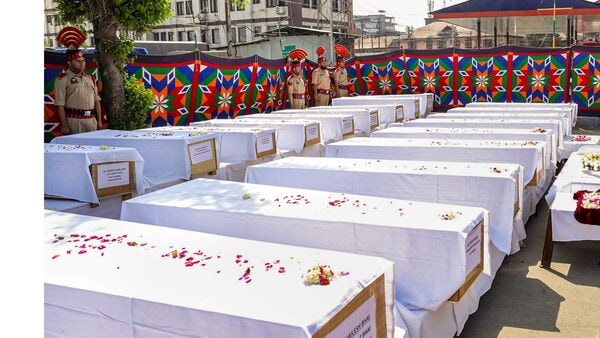Tragedy in Paradise: Pahalgam Terror Attack Shocks the Nation
Pahalgam, Jammu and Kashmir – April 22, 2025
In what is being called one of the deadliest civilian attacks in recent memory, a brutal terrorist assault took place in the peaceful tourist town of Pahalgam, turning a serene spring afternoon into a scene of horror and heartbreak. At least 28 people lost their lives and over 20 were injured when heavily armed militants opened fire on a group of tourists visiting the scenic Baisaran Valley.
The Incident: Peace Shattered in Minutes
According to eyewitnesses and local authorities, the attack occurred shortly before 3 PM on Monday. A group of assailants, believed to be seven in number, disguised themselves in security-style outfits and made their way to the crowded tourist site. Once among the unsuspecting crowd, they opened fire indiscriminately, targeting men, women, and children.
Panic erupted as families fled for cover. Some locals rushed to help, including Syed Adil Hussain Shah, a young man from the nearby village who tried to shield a group of tourists and was tragically gunned down.
Who Was Behind the Attack?
The militant group believed to be behind the attack is The Resistance Front (TRF), a proxy outfit reportedly linked to Lashkar-e-Taiba. The group released a statement claiming responsibility and cited political motives related to recent changes in the region’s demographics and land policies.
Indian intelligence agencies are investigating the broader network that supported the attackers and have launched massive search operations across the valley.
National Outrage and Global Condolences
The attack drew immediate condemnation from across the political spectrum in India. Prime Minister Narendra Modi expressed deep sorrow and pledged swift justice for the victims. Union Home Minister Amit Shah visited the area and met with the families of those affected, assuring them that justice will be served.
Leaders from across the globe — including from the United States, United Kingdom, and European Union — condemned the attack and expressed solidarity with India. The United Nations Secretary-General issued a statement calling for accountability and emphasized the need for global cooperation to combat terrorism.
Tightened Security and Support for Victims
In response, authorities in Jammu and Kashmir have tightened security, increased military presence in sensitive areas, and sealed off escape routes to prevent militants from fleeing. The state government announced compensation of ₹10 lakh for the families of the deceased and financial assistance for the injured.
Security forces are also using drone surveillance and intelligence grids to track any suspected militants still at large.
Impact on Local Tourism and Economy
Pahalgam, often referred to as “Mini Switzerland,” is one of Kashmir’s most beloved tourist spots. With the news of the attack spreading, hundreds of bookings have been canceled, dealing a severe blow to the local economy which heavily depends on tourism.
Many local shopkeepers, horsemen, and hotel owners now fear a repeat of the long dry spells of tourism that have haunted the region during previous conflict phases.
The Road Ahead: Resilience and Reflection
While fear and anger dominate the current mood, stories of bravery and unity also shine through. Locals like Syed Adil Hussain Shah are being hailed as heroes. Civil society groups across the country are calling for peace, justice, and long-term strategies to ensure the safety of civilians and promote harmony in the region.
The attack has reignited debate on the security challenges in Jammu and Kashmir, and the path India must tread between development, dialogue, and defense.






